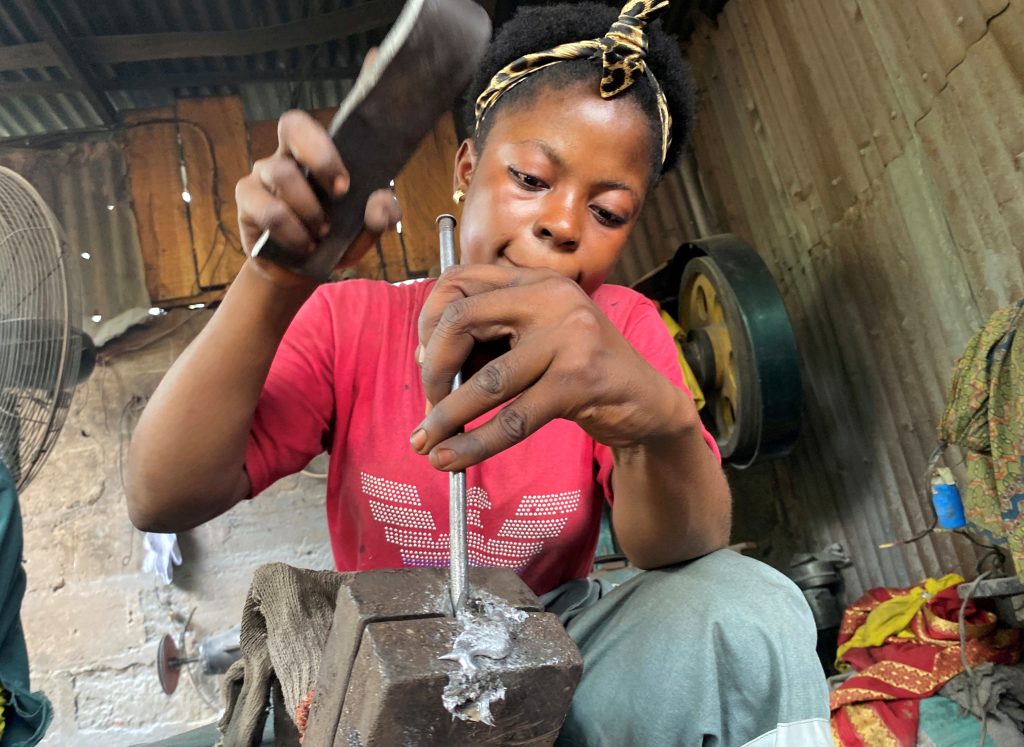Germany has taken the reins of the Group of Seven (G7) nations this year and put forward a five-goal agenda under the banner: “Progress towards an equitable world.” One of the goals is “Setting the course for economic stability and transformation.”
That objective recognizes worldwide economic fragility, as economic losses are expected to reach $13.8 trillion through 2024 relative to pre-pandemic forecasts. The world faces supply-chain uncertainty, persistent unemployment, rising prices, food insecurity, and widening inequality, along with mounting sovereign, corporate, and individual debt. Meanwhile, Russia’s invasion of Ukraine is a reminder that geopolitical risks further threaten economic recovery. At the same time, however, the objective acknowledges the transformational opportunities in climate action and the just transition—a set of principles aimed at building an inclusive and regenerative economy. As it is, delivering on this goal will be difficult, especially in the developing world, where the pandemic’s toll was fierce, the recovery has been slow, and where climate change is disproportionately impacting the already vulnerable (while there are fewer resources for adaptation and mitigation).
On this International Women’s Day, it’s worth reminding the G7 that its target simply cannot be achieved without the full participation and leadership of women—who face a $170 trillion global earnings gap, showing the world’s massive unmet economic potential. Nowhere is that more true than in emerging markets and developing economies, where the rates of women’s economic participation, finance, and entrepreneurship are among the lowest in the world: Female labor-force participation rates in South Asia and the Middle East and North Africa are 24 percent and 20 percent respectively. The massive scope for improvement, however, suggests a major opportunity for a gender dividend to stability, transformation, and growth.
The G7’s road map for meeting its goal focuses on economic recovery, advancing rules-based free trade, and creating sustainable and gender-equitable public finances (including the timely introduction of a global minimum tax rate). In each of these areas, intentionally developing and applying gender-responsive, equitable, and inclusive practices can be catalytic. By designing government stimulus and donor packages for women, targeting everything from social protection and care provisions to small-business support, countries can help billions of women return to and engage in work.
Similarly, more inclusive trade with and among lower- and middle-income countries (LMICs) is a win-win-win: for women, supply chains, and growth. Studies show that exports generate more and better jobs for women. Exporting firms in developing countries employ more women than non-exporting companies—a third versus a quarter of their workforce respectively. Those working in this sector are more likely to receive higher pay, superior benefits, and greater job security. At the same time, trading regimes tend to disfavor women by imposing “pink” tariffs on products they are more likely to consume or produce, or raise prices on goods such as food that account for a larger share of their spending. Eliminating import tariffs could lift women’s real income more than men’s.
Additionally, gender-equitable public financing—whether it’s on the spending or tax side—can help guarantee that systems and services better meet the needs of women to participate in the economy. In LMICs, value-added taxes (VAT) account for more than four times the revenue collected from women through personal income taxes, and the poorest (a group in which women are overrepresented) tend to pay the largest share of VAT. In addition to tax reform, it is important to ramp up participatory, gender-responsive budgeting practices to ensure adequate funding is directed toward meeting women’s needs in health, education, transportation, and digital infrastructure.
It’s critical to remember that women’s economic empowerment can be a force multiplier for societal well-being more broadly. Putting women at the front of the agenda to move toward economic stability and transformation can have spillover effects that support the G7’s other four principal goals as well:
- “Sustainable planet:” Promoting women’s participation in the green economy, energy transition, and climate-change adaptation will contribute to a socially just transformation.
- “Healthy lives:” Women account for roughly 70 percent of the global health workforce. They therefore stand both to contribute to and benefit from efforts to improve the international health architecture, strengthen the private sector health market, and accelerate the vaccine campaign in developing countries.
- “Investments in a better future:” Investing in human capital (education, training, and lifelong learning) as well as the care economy will pay dividends for women. In fact, incomplete education of girls costs between fifteen trillion and thirty trillion dollars globally in lost lifetime productivity and earnings.
- “Stronger together:” Initiating solutions that promote women’s economic and business leadership while encouraging male allyship helps advance intergenerational and international partnerships, economic cooperation, private-sector engagement, and trade. The world benefits.
Before the pandemic, just 2 percent of official development assistance globally went toward gender equality as a primary objective of spending in the sectors and policies most relevant to women’s economic participation, such as agriculture, services, transportation, and energy. In all, 47 percent of total bilateral spending in these sectors integrated a gender equality perspective. The G7 can—and should—do more to support women’s economic empowerment and financial inclusion, whether through its own initaitives and investments, its influence on other organizations, or its member countries’ work with allies and partners.
Meanwhile, the rising scope of other financial flows to developing countries in the form of remittances, foreign direct investments, impact investing, and digital currencies gives the G7 additional levers to innovate in a way that both benefits women and bolsters progress towards an equitable world. One won’t happen without the other.
Nicole Goldin is a nonresident senior fellow at the GeoEconomics Center and global head of inclusive economic growth at Abt Associates, a consulting and research firm.
Image: A woman works on a mould at the makeshift workshop of Nigerian entrepreneur, Ukamaka Okoye, in the southeastern town of Nnewi, Anambra state, Nigeria on September 19, 2020. Photo by Seun Sanni/Reuters.
